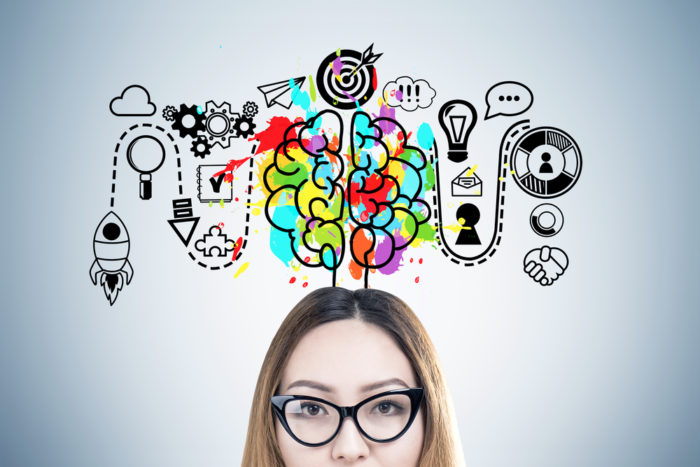
What is a ‘thought’ and how do negative emotions affect your brain health and well being?
April 7th, 2022It’s a fact – stress ages you, it shortens telomeres, the ‘end caps’ of our DNA strands which cause a person to age quicker. All of us are experiencing some form of stress at the moment, we have good reason to feel anxious because of shocking things like the pandemic, the war in Ukraine or the cost of living. At times, negative emotions are running high, we feel upset, frustration, fear, anger and sadness about things we don’t have any control over. If you think about it too much, the negative emotion can affect your brain health and well-being.
What happens when you ‘think’?
The science of your brain is fascinating, the brain contains neurons which are nerve cells through which signals are sent. Neurons release chemical messengers through a structure called a synapse and the messengers communicate with other cells such as dopamine, epinephrine and norepinephrine. When you ‘think’ there is a sudden burst of voltage caused by chemical changes sending messages to the prefrontal cortex or hippocampus in the brain. The prefrontal cortex is the part of the brain involved in planning, personality, decision making and social behaviour. The hippocampus is the part of the brain crucial to a variety of memory functions.
Negative emotions and the brain…
We all have to deal with unfortunate situations that stir up negative emotions. When those emotions are poorly managed, it can upset the hormone balance in the brain and reduce the chemicals required for happiness and a strong immune system. Repressed emotions such as fear or negativity seriously affect the body, it increases stress levels that can lead to life-threatening health problems – high blood pressure or a heart attack for example.
In life, most people experience more negative emotions than positive but, if you can learn to find and grab hold of a positive emotion, no matter how small – dealing with the negative one is easier. Here’s a basic example, you buy a nice bottle of wine to have with dinner and you drop it in the kitchen. The response would initially be negative emotion – annoyance, frustration, maybe anger and disappointment. However, on a positive note, you’ve stopped yourself from consuming too many calories and having a headache in the morning. Because you didn’t drink a few glasses of wine you didn’t get the evening munches – saving you even more calories. Yes, it’s annoying that you wasted money on a bottle of wine but you’ve most probably also saved yourself from the negative emotional affects that wine has on the brain.
The benefit of positive emotions…
Emotions that are felt and expressed freely without judgement or attachment flow out of the body without a detrimental impact on our mental health. Dr Barbara Fredrickson from the University of Carolina has spent years researching and publishing the physical and emotional benefits of positivity. She explains, “The good news is not only that positive attitudes such as playfulness, gratitude, awe, love, interest, serenity and feeling connected to others have a direct impact on health and wellbeing, but that we can develop them ourselves with practice.” Her research has been followed and published in The New York Times and USA Today.
In this short video, Dr Fredrickson explains the great value of positivity and its effect on the body. Insert link: https://www.takingcharge.csh.umn.edu/living-positivity-interview-dr-barbara-fredrickson
By engaging in skills such as focused breathing and gratitude, mindfulness enables us to put some space between ourselves and our reactions, leading to better focus and feelings of calmness and relaxation. According to Dr Jon Kabat-Zinn, founder of Mindfulness-Based Stress Reduction (MBSR), mindfulness is “the awareness that arises from paying attention, on purpose, in the present moment and non-judgementally.” Read more here. Insert link: https://www.verywellmind.com/benefits-of-mindfulness-based-stress-reduction-88861
Are you struggling to balance your emotions, is it affecting your health and well-being? Here are 17 helpful well-being tips to think about:
- Regret is a waste of energy – you can’t change the past but you can learn from it. Turn off negative action replays, don’t keep making the same mistake.
- Understand your emotions – balance logic and emotion. Learn about what triggers your negative emotions and try to find a coping strategy.
- Remember, most stress is optional – you can choose how to handle it!
- Deal with things that are causing you stress – work, parenting, relationships, debt or illness?
- Be self-aware and mindful – know your limitations and learn to compromise. Don’t jump to conclusions and consider all the facts.
- Accept that you can’t please all the people all of the time – conflict is ok, you don’t have to agree on everything. It is normal to disagree and express feelings of disappointment.
- Think yourself smarter – keep learning, feed and train your brain. Use creative thinking and thrive on and overcome a challenge.
- Stand back sometimes – don’t believe things because everyone else does and keep an eye on the people around you. By that, we mean to be aware of how others are affecting your emotions. Do certain people trigger negative emotions?
- Practice resilient thinking – try not to panic, don’t overload your brain and get distracted. Dodge your bad habits and set boundaries.
- Facing a problem? Make sure it actually is a problem – procrastination is detrimental to your health. Don’t be bullied make your own decisions and ask for help when needed.
- Practice organised thinking – make lists, be flexible and have options. Combat negative emotions with mind maps. : http://www.mindmapinspiration.com/combating-negative-emotions-mind-map-set-paul-foreman/
- Be open – make connections, and let others give you ideas and opinions.
- Untangle knots in your life – acceptance is not ‘giving up.
- Note: Self-pity can’t make you happy.
- Exercise to relieve stress and anxiety – increasing blood flow to the brain can boost your mental powers.
- Eat a healthy diet – stay hydrated and exercise. Find out more about foods linked to better brainpower. : https://www.health.harvard.edu/healthbeat/foods-linked-to-better-brainpower
- Try supplements for mental well-being.
Products worth a mention:
There is a lot of help available from experts in the field of emotions and brain health. Take a look at these coping strategies, they could be what you need to help you balance your emotions.
Cognitive reappraisal or cognitive reframing is another strategy that can be used to improve self-regulation abilities. This strategy involves changing your thought patterns. Specifically, cognitive reappraisal involves reinterpreting a situation in order to change your emotional response to it.
More info: https://www.verywellmind.com/cognitive-reframing-for-stress-management-3144872
Cognitive behavioural therapy (CBT) is a talking or online therapy that can help you manage your problems by changing the way you think and behave. CBT aims to help you deal with problems in a more positive way by breaking them down into smaller parts. You are shown how to change negative patterns to improve well-being.
Empty chair therapy is used in therapy, people imagine a specific person — or an aspect of themselves — is in the room, “sitting” in an empty chair. This technique allows people to investigate personal roots of emotional distress that may have been formed in the past.
Not all stress is bad, you need it to keep you on your toes and enhance your performance. Whatever stress life throws at you, make your goal to get yourself in a good mood – for your benefit and others around you. Have stupid ideas, laugh and think happy. Afterall, if you’re in a good mood, you achieve a lot more.








